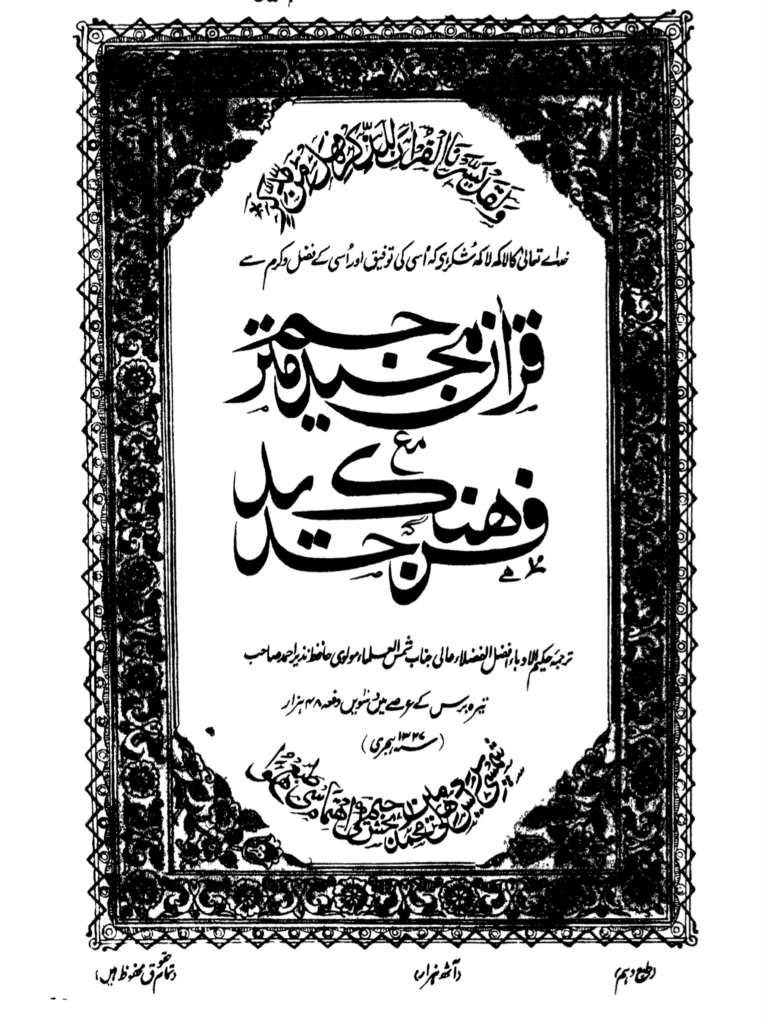Qur’an translation of the week #97: Tafsīr-i Uthmānī – ‘Restoring’ an old translation
What do you do when the language of a Qur’an translation becomes outdated, but you still want readers to benefit from the work? One answer is provided by Maḥmūd Ḥasan’s Urdu Qur’an translation, which was later included in the Tafsīr-i Uthmānī. Maḥmūd Ḥasan (d. 1920), who became later known as ‘Shaykh al-Hind’, was born in …
Qur’an translation of the week #97: Tafsīr-i Uthmānī – ‘Restoring’ an old translation Read More »


